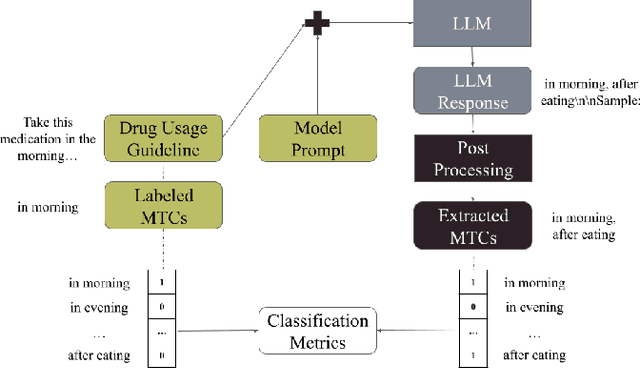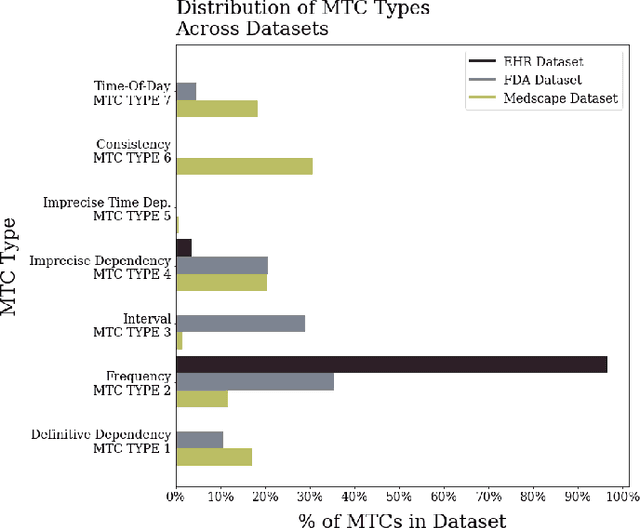The Scope of In-Context Learning for the Extraction of Medical Temporal Constraints
Paper and Code
Mar 16, 2023



Medications often impose temporal constraints on everyday patient activity. Violations of such medical temporal constraints (MTCs) lead to a lack of treatment adherence, in addition to poor health outcomes and increased healthcare expenses. These MTCs are found in drug usage guidelines (DUGs) in both patient education materials and clinical texts. Computationally representing MTCs in DUGs will advance patient-centric healthcare applications by helping to define safe patient activity patterns. We define a novel taxonomy of MTCs found in DUGs and develop a novel context-free grammar (CFG) based model to computationally represent MTCs from unstructured DUGs. Additionally, we release three new datasets with a combined total of N = 836 DUGs labeled with normalized MTCs. We develop an in-context learning (ICL) solution for automatically extracting and normalizing MTCs found in DUGs, achieving an average F1 score of 0.62 across all datasets. Finally, we rigorously investigate ICL model performance against a baseline model, across datasets and MTC types, and through in-depth error analysis.
 Add to Chrome
Add to Chrome Add to Firefox
Add to Firefox Add to Edge
Add to Edge